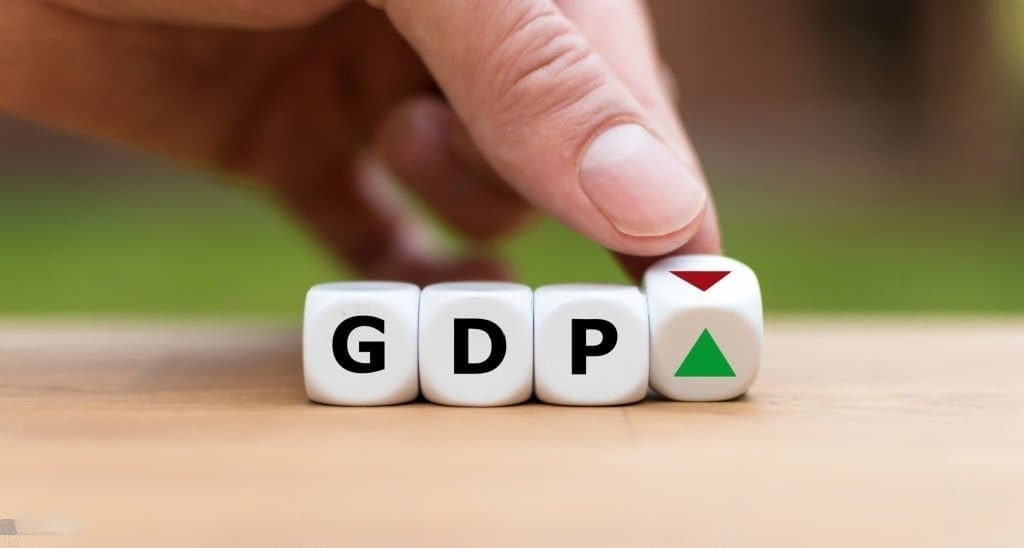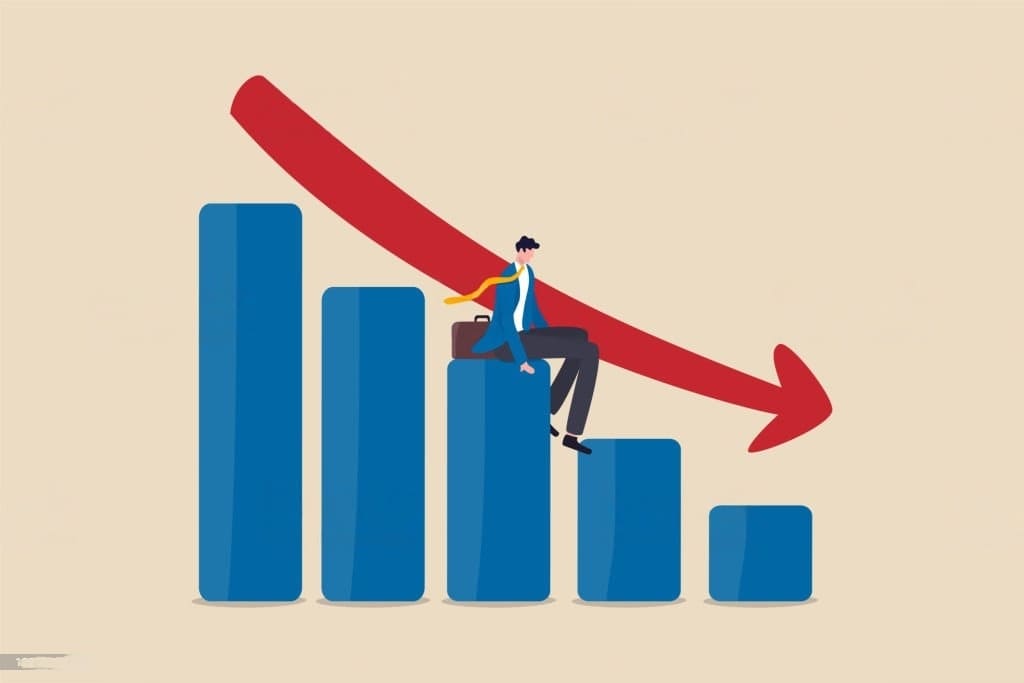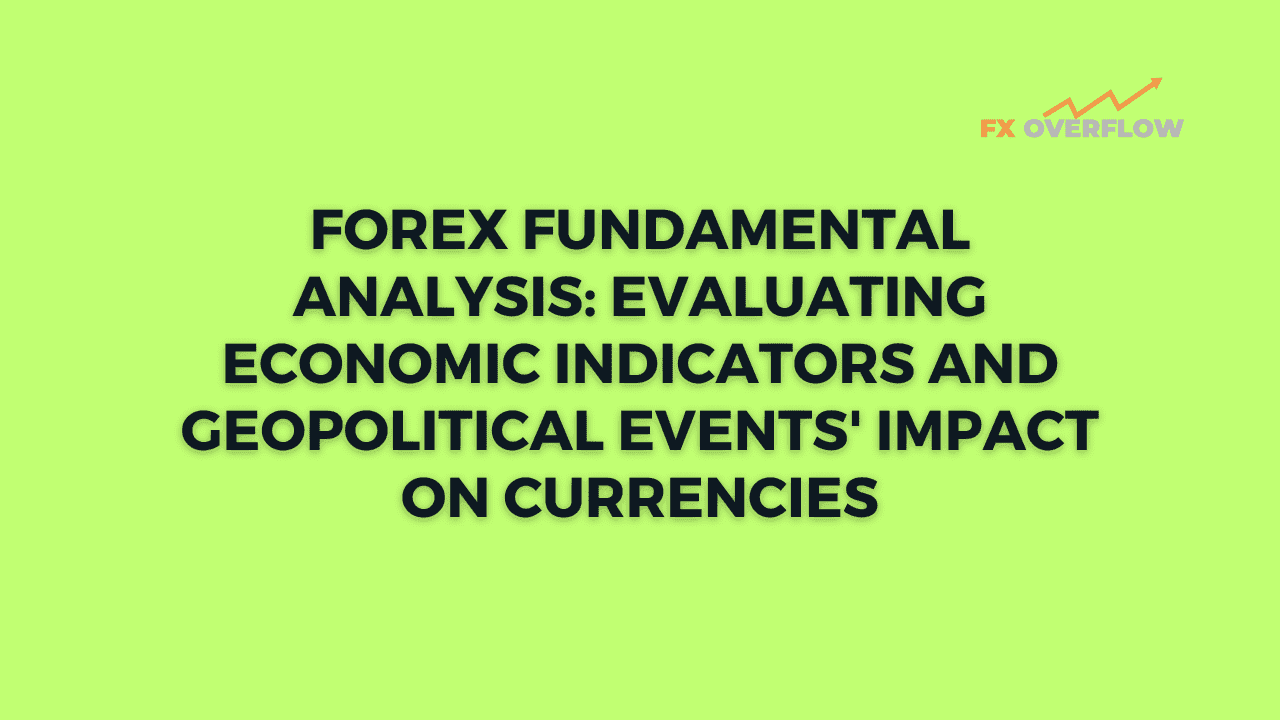Forex Fundamental Analysis: Evaluating Economic Indicators and Geopolitical Events' Impact on Currencies
In the ever-evolving world of currency trading, understanding the dynamics of Forex fundamental analysis is crucial for success. This comprehensive guide delves deep into the art of evaluating economic indicators and geopolitical events' impact on currencies. From interpreting economic data to analyzing global political shifts, we will explore the factors that influence currency fluctuations. Gain insights into the fascinating world of Forex fundamental analysis and learn how to navigate the complex web of economic events and political landscapes that shape currency movements.
Table Content
· Economic Indicators: The Pulse of a Nation's Economy
· Geopolitical Events: Unforeseen Ripples in the Forex Market
· Analyzing Currency Correlations
· Interpreting Central Bank Policies
· Evaluating Market Sentiment
· Fundamental vs. Technical Analysis
· Putting It All Together: A Case Study
· Footnote
· FAQs
Economic Indicators: The Pulse of a Nation's Economy
Economic indicators serve as the heartbeat of a nation's economy, revealing vital signs that can affect its currency's value. These indicators provide valuable insights into economic health, growth, and stability. Key economic indicators include:
· Gross Domestic Product (GDP)
GDP measures a country's economic output and reflects the overall health of its economy. A robust GDP growth rate often leads to currency appreciation, while a decline may result in depreciation.

· Consumer Price Index (CPI)
The CPI tracks changes in the prices of essential goods and services, giving an indication of inflation levels. Central banks use this data to adjust interest rates, impacting currency values.

· Unemployment Rate
A low unemployment rate signals a strong economy and can bolster a currency. Conversely, high unemployment may weaken a currency's value.

· Retail Sales
Retail sales data reflects consumer spending habits and is a crucial indicator of economic activity. Strong retail sales can strengthen a currency, while weak figures may lead to depreciation.

Geopolitical Events: Unforeseen Ripples in the Forex Market
Geopolitical events wield immense power over currency markets, often leading to significant fluctuations. Traders must stay vigilant and monitor geopolitical developments that impact currencies. Key geopolitical events include:
· Elections and Political Shifts
Political changes, such as elections, regime shifts, or policy alterations, can create uncertainty and volatility in the Forex market.
· Trade Agreements and Tariffs
Trade agreements and tariffs can influence international trade and may trigger currency fluctuations, especially for countries heavily involved in global commerce.
· Wars and Conflicts
Armed conflicts disrupt stability and confidence in the affected region's currency, often leading to depreciation.
· Natural Disasters
Natural disasters can cause economic disruptions and impact a country's currency value, especially if they affect critical industries.
Analyzing Currency Correlations
Understanding currency correlations is essential for hedging risk and making informed trading decisions. Some currencies have strong positive correlations, while others exhibit negative or no correlations. Key currency correlations include:
· Major Currency Pairs
Major currency pairs, such as EUR/USD and USD/JPY, often exhibit inverse relationships. Traders must grasp these connections to mitigate risks.
· Commodity-Dependent Currencies
Currencies of countries heavily reliant on commodity exports, like AUD and CAD, are closely tied to commodity prices.
Interpreting Central Bank Policies
Central banks play a vital role in shaping currency values through monetary policies. Understanding their decisions is crucial for Forex traders. Key aspects include:
· Interest Rate Decisions
Central banks adjust interest rates to control inflation and stimulate economic growth, impacting currency values.
· Quantitative Easing (QE)
QE programs influence currency values by injecting liquidity into the economy.
Evaluating Market Sentiment
Market sentiment reflects the collective perception of traders towards a currency's future prospects. Key factors include:
· Risk Appetite
During times of heightened risk aversion, investors tend to seek safe-haven currencies, influencing their demand and value.
· Speculative Positioning
Monitoring speculative positions can reveal potential currency trends and reversals.
Fundamental vs. Technical Analysis
Traders often debate the merits of fundamental and technical analysis. While fundamental analysis assesses economic factors, technical analysis focuses on price charts and patterns.
Putting It All Together: A Case Study
Let's apply Forex fundamental analysis to a hypothetical scenario. Assume that Country X releases robust GDP figures, signaling a thriving economy. Simultaneously, Country Y experiences political instability due to an upcoming election. Traders would expect Country X's currency to strengthen and Country Y's currency to weaken, reflecting the economic and political situations.
Footnote
In Summary, forex fundamental analysis is a powerful tool that equips traders with insights to navigate the dynamic currency markets. By analyzing economic indicators, geopolitical events, currency correlations, central bank policies, and market sentiment, traders can make informed decisions. Remember, success in Forex trading requires a comprehensive understanding of both fundamental and technical analysis.
FAQs
1. How does Forex fundamental analysis differ from technical analysis?
Fundamental analysis evaluates economic factors and geopolitical events, while technical analysis focuses on price charts and patterns.
2. Which economic indicators have the most significant impact on currency movements?
Gross Domestic Product (GDP), Consumer Price Index (CPI), and Unemployment Rate are among the key economic indicators influencing currency values.
3. How do central banks influence currency values?
Central banks influence currency values through interest rate decisions and quantitative easing (QE) programs.
4. Can political events affect currency fluctuations?
Yes, geopolitical events like elections, trade agreements, wars, and natural disasters can significantly impact currency movements.
5. How can traders use currency correlations to their advantage?
Understanding currency correlations helps traders hedge risks and make informed trading decisions in interconnected global markets.











Discussion